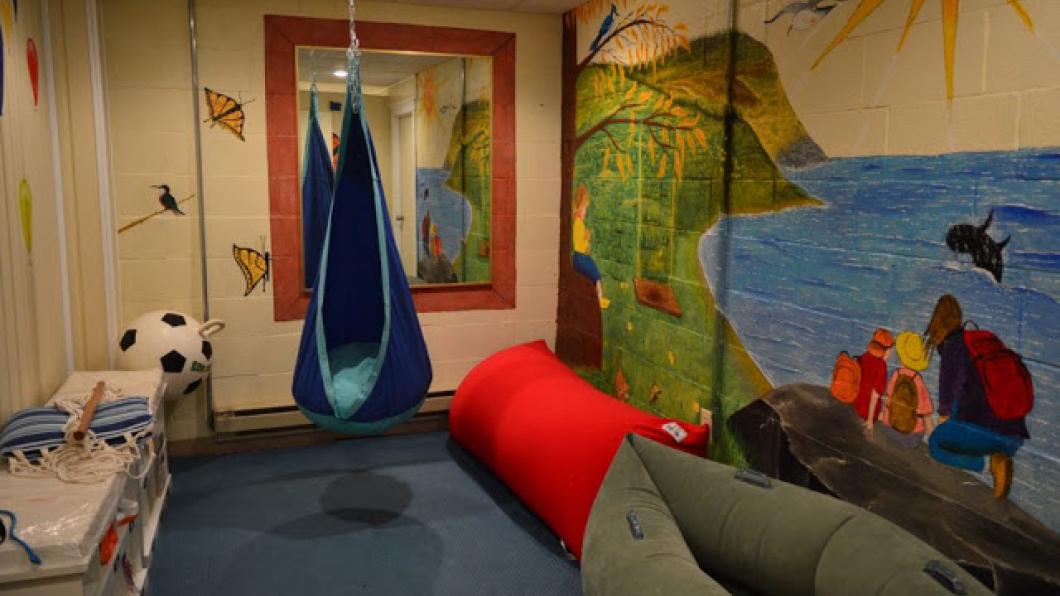
Hotel helps kids with autism feel at home
By Louise Kinross
A small Newfoundland coastal town is home to Canada’s first autism-friendly hotel.
Hotel Port aux Basques offers a fully-equipped sensory room (above), bedrooms with extra security features for kids who wander, a visual kids menu and a social story with pictures and text that parents can share with children in advance so they know what to expect.
Owner Cathy Lomond says the idea came from local teacher Joan Chaisson. “She’d organized a group of parents and one of their biggest concerns was how difficult it is to travel with children with autism and special needs.”
Cathy offered the group—called Autism Involves Me—a spare room and the group raised money to furnish a sensory and quieting room.
“There’s a blue swing called a crow’s nest that holds a child cocoon-like, a peapod-shaped boat they can climb in and rock, little hand grips if they want to climb the wall, or bouncy bags if they want to blow off steam,” Cathy says. The room has special mats and a seaside mural painted by a local artist.
Recently, a family arrived for dinner after a seven-hour drive across Newfoundland. Their autistic daughter was distraught.
“The child was very emotional and screaming and it would have been impossible for them to eat in the restaurant,” Cathy recalls. “But by going into the sensory room first, the child relaxed into a quiet mode. The mother couldn’t say enough about what it meant to be able to go and enjoy their dinner.”
The hotel also has four autism-friendly bedrooms. The doors are equipped with high door chains for children who wander. Inside, the TV and pictures are mounted to the walls and there are locks on drawers if parents want to keep appliances like a coffee maker out of reach. The adapted rooms are priced on par with regular rooms and Cathy says they plan to increase them to 14.
“Before people come, we send them questions about how we can help with their specific needs,” Cathy says. For example, “if you need to go into our kitchen to prepare your child’s meal, you can do that. It’s all about satisfying people’s needs. We want to do the warm and fuzzy things that people remember when they travel.”
After creating the sensory room and adapted bedrooms, Cathy brought in an expert to educate front-line staff about autism.
“When our sports complex heard we were doing the training, they asked if they could send eight of their people down, because they wanted to adapt some of their classes for children with autism. So we did two trainings.”
Port aux Basques has been designated an autism-friendly community because a grocery store, hairdresser and other services have followed the hotel’s lead.
Cathy, who first worked at the hotel as a teenager, bought the property 19 years ago. Joan, the teacher who spearheaded the project to adapt the hotel, once taught Cathy's sister Sherry, who has Down syndrome.
Cathy now chairs Newfoundland’s tourism quality assurance board. “When our inspectors go to do inspections, they will be asking ‘Do you want information on how to be autism-friendly?’” Cathy says adapting bedrooms is not expensive.
“It’s nothing new, because we’ve made things wheelchair accessible and accessible for vision impairment. This is the next step, given the growing number of children who have autism.”
Success “is all about the little things,” Cathy says.